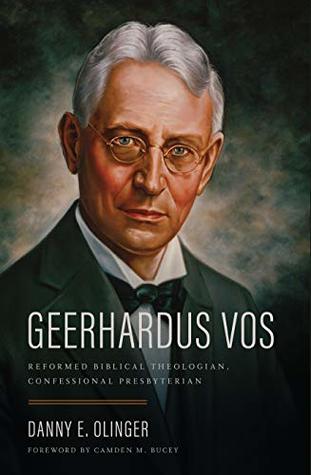By Danny E. Olinger (Philadelphia: Reformed Forum, 2018), xiii + 332pp., $39.99.
ISBN 9780998748726
Book reviews frequently conclude that the reviewed work is ‘essential reading’. This biography of Geerhardus Vos, however, makes it clear that it is rather the writings of Vos themselves that are indispensable. In the modern landscape, it is difficult to see how there can be any Biblical Theology or doctrine of the Kingdom that rightly claims the title ‘Reformed’ that has not taken its point of origin from Vos. Further to that, the ‘father of Biblical Theology’ took his stand upon the Covenant Theology of the great Reformed creeds and confessions, including Westminster, notwithstanding his Dutch origins. Vos is a reminder that Reformed Biblical Theology is Covenant Theology, and indeed, that Reformed Theology is Covenant Theology.
Olinger (author of A Geerhardus Vos Anthology: Biblical and Theological Insights Alphabetically Arranged, P & R, 2005) gives a splendid overview of various emphases in Vos’s thought. For those who have not read Vos, this book could be read as an introduction, providing general orientation. It could make reading his writings themselves easier, or help to direct focus to the matters of importance.
For those who have read Vos, the book is a warm reminder of how engaged Vos was with the things that matter: the glory of God and the subordinate place of humanity (over against Lutheran theology which takes man as the starting point—how can I find my salvation?); the electing love of God (Vos the supralapsarian); covenant as the structuring device of Scripture and the importance of the covenant of works; Biblical Theology or the history of special revelation; the Kingdom of God and its close identification with the Church.
The reader is advised that this is mainly theological biography—a history of a man’s thinking. Vos’s wider life is usually only broadly described. There is some detail on his parents’ upbringing in Bentheim, Germany, the general contours of Vos’s marriage and his correspondence with ones such as Bavinck are mapped, and there is attention to his decision not to leave Princeton for Westminster (finances, imminent retirement, non-combative personality, spiritual concern for Princeton).
There are occasional titbits of information. That he spent in excess of 20 hours per week lecturing in his early years at Calvin Seminary in Grand Rapids, whilst still managing to turn his notes into his five volumes of Reformed Dogmatics (see the review above), testifies to his sheer intellectual acumen. His precipitous termination of his first foray into camping struck a chord with this reviewer. The poor attendance at his funeral seems incongruous.
Still, it feels as though there is more to be said. How did this temperate man go about his day to day life? What did a day in the life of Vos look like, or is it the nature of the man that only so much can be said about him? Indeed, what did Vos literally look like? There are no photographs in the book, but only the portrait on the dust jacket.Reformed Dogmatics and other assorted writings of Vos (including poetry—and his sermons! Perhaps his sermons are not exemplars of homiletical style, and Olinger discusses the critics, but they are peerless in devotional beauty) are available in various formats, including on Kindle and Logos. If one wants to come face to face with Vos without working through all this material—or if one has read Vos but somehow missed his brilliance—Olinger’s biography is essential reading. The lack of page numbers for the indexes is noted.

















